Ant infestations are a common problem requiring strategic pest control measures. Ants, highly organized social insects, live in colonies guided by pheromone trails and are attracted to sweet substances, moisture, and wood. Effective ant management involves identifying entry points, sealing them, maintaining cleanliness, and using tailored treatments like baiting systems or natural repellents. Preventive measures such as regular inspections, proper waste management, and well-trimmed lawns also deter ants. For severe cases, professional pest control services offer heat treatment, fumigation, and specialized techniques. Post-treatment, maintaining a clean environment, organizing spaces, and monitoring for early signs of recurrence are crucial to prevent future infestations.
Ant infestations can be a persistent and frustrating problem for both homes and businesses. Understanding ant behaviors and identifying early signs is crucial for effective pest control. This comprehensive guide explores various strategies to manage and prevent ant invasions, from natural repellents to professional extermination services. Learn how to navigate the complex landscape of ant control, ensuring a peaceful and pest-free environment. Discover the best practices for both DIY methods and expert interventions, empowering you to tackle ant infestations head-on with confidence.
Understanding Ant Infestations: Common Types and Behaviors
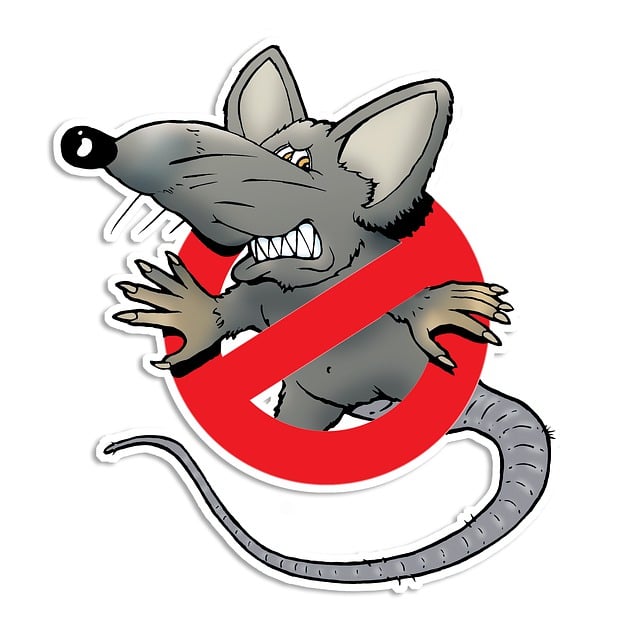
Ant infestations can be a common nuisance for both homes and businesses, requiring effective pest control measures to mitigate their presence. Understanding these tiny invaders is key to successful prevention and elimination. Ants are highly organized social insects that live in colonies, with each member playing a specific role to ensure the survival of the entire group. They communicate through pheromone trails left on the ground, which guide other ants to food sources.
There are numerous species of ants, each with unique behaviors and preferences. Common types include the odorous house ant, carpenter ant, and fire ant. These insects are attracted to various stimuli like sweet substances, moisture, and wood, leading them to homes and businesses. Identifying their specific behavior patterns is crucial for implementing targeted pest control for ants, ensuring a more effective and efficient solution.
Identifying Signs of Ant Activity in Your Property
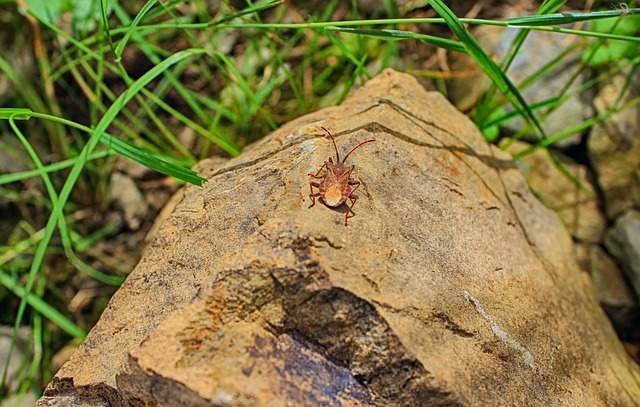
Ants are relentless invaders that can quickly take over your home or business if left unchecked. The first step in effective ant control is identifying signs of their presence. Look for tiny cracks and crevices, especially near windows and doors, as these are common entry points. You might also notice small piles of ant debris, such as dead ants or bits of food, which can indicate an established colony nearby.
Ant trails are another telltale sign. These paths, often composed of thousands of tiny specks, lead to and from a source of food. Tracking these trails with a bit of talcum powder or chalk can help you visualize their movement and identify the nest’s location. Regular pest control for ants involves staying vigilant and addressing these signs promptly to prevent infestations from becoming unmanageable.
Effective Pest Control Methods for Ant Management
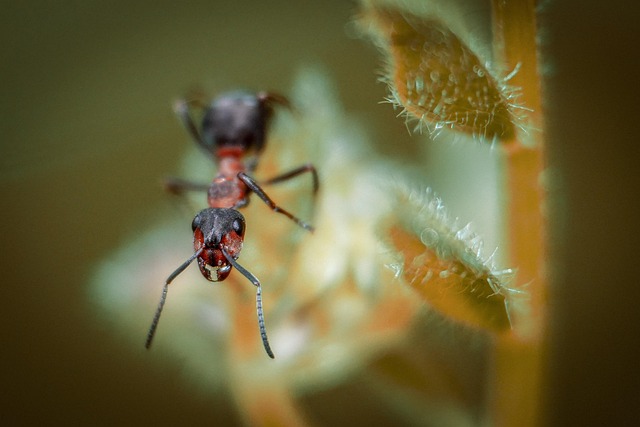
When it comes to effective ant management, there are several pest control methods that can be employed for both homes and businesses. One of the most common and eco-friendly approaches is integrating preventive measures such as sealing entry points, maintaining cleanliness, and storing food in airtight containers. Regular inspections and quick response to any signs of infestation are crucial to stop ants from establishing colonies.
For more robust solutions, professional pest control services offer a range of treatments including baiting systems, where worker ants collect toxic baits back to their nests, effectively eliminating the entire colony. Insecticides and repellents can also be applied, but these should be used cautiously to avoid harm to pets, children, and the environment. In severe cases, heat treatment or fumigation may be required, but these methods are typically reserved for larger infestations or when other techniques have failed.
Home and Business Owner's Guide to Preventing Ant Entry
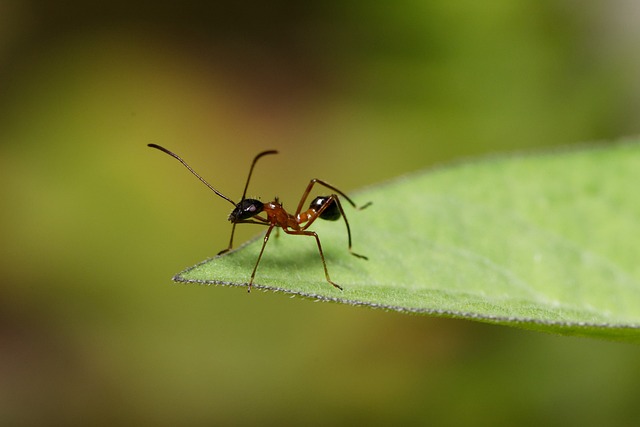
As a home or business owner, preventing ant infestations is an essential part of maintaining a clean and safe environment. Ant control begins with understanding how these pests infiltrate your space. Ants are known to navigate through tiny cracks, gaps in doors or windows, and even pipes, seeking food sources. Regular inspections can help identify potential entry points, allowing for prompt sealing or patching up of these openings. Keeping your property clean is another powerful tool in ant prevention; eliminating food debris and regularly cleaning surfaces reduces the appeal of your home or business as an attractive habitat for ants.
Moreover, proper waste management practices are crucial. Ensuring that garbage cans are tightly sealed and disposed of regularly can significantly deter ants from being drawn to your property. Additionally, maintaining a well-trimmed lawn and tree branches away from windows and doors creates a physical barrier, making it harder for ants to find easy access into buildings. By combining these preventive measures with basic cleanliness practices, home and business owners can effectively reduce the risk of ant infestations, thereby avoiding costly pest control for ants in the future.
Natural Ant Repellents and Eco-Friendly Control Options
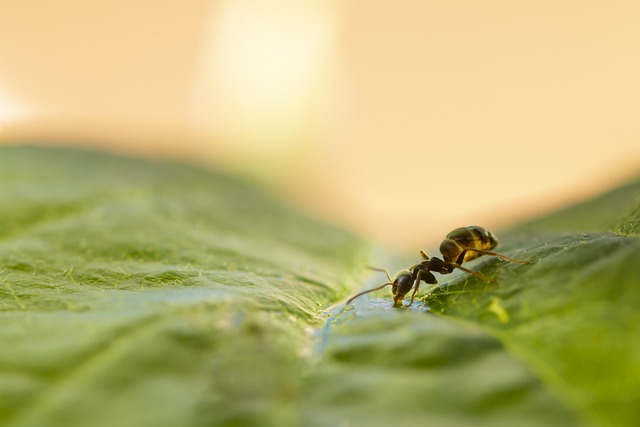
Many homeowners and business owners are increasingly seeking eco-friendly and natural solutions for ant control, driven by both environmental concerns and a desire to avoid harsh chemicals. Natural ant repellents offer a safer alternative to conventional pest control methods. These include essential oils like peppermint, lemon, and eucalyptus, which ants find unappealing due to their strong odors. Plant-based ingredients such as borax or diatomaceous earth can also be effective in deterring ants without causing significant harm to the environment or pets.
Beyond repellents, there are several eco-friendly control options available. Encouraging natural predators like spiders and birds can help manage ant populations. Maintaining a clean and clutter-free environment, especially in kitchens, reduces attractants for ants. Using sealed containers for food storage and promptly cleaning up spills also makes living spaces less hospitable to these pests. For more severe infestations, there are organic pesticides made from natural ingredients that are safe for use around children and pets while effectively targeting ants.
Professional Ant Extermination Services: When to Hire Experts
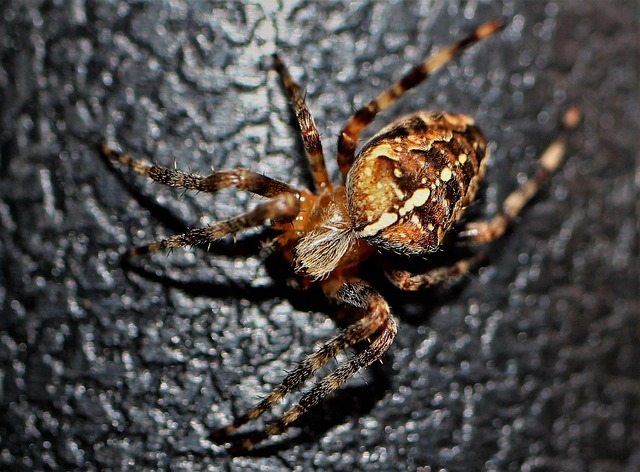
Ant infestations can quickly spiral out of control, especially in commercial spaces or larger homes. This is where professional ant extermination services come into play. Experts in pest control for ants have the knowledge and tools to swiftly and effectively eliminate even the most persistent ant problems. They employ specialized techniques tailored to specific species, ensuring minimal environmental impact while delivering maximum results.
Hiring professionals is particularly advisable when DIY methods fail or the infestation is extensive. These experts can identify entry points and nest locations, providing a comprehensive solution. Additionally, they offer ongoing prevention strategies, helping to safeguard against future ant invasions. This proactive approach not only saves time and frustration but also ensures a cleaner, healthier environment for both homes and businesses.
Maintaining a Pest-Free Environment Post-Treatment
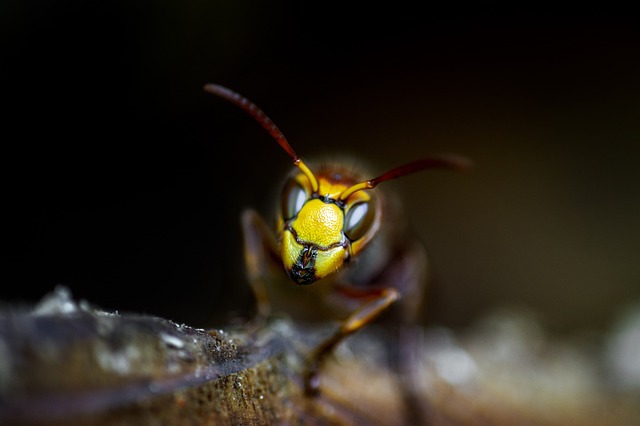
After an ant control treatment, maintaining a pest-free environment is crucial. This involves addressing any existing conditions that attracted ants in the first place, such as food sources or entry points into your home or business. Regular cleaning and sanitizing are essential practices to deter ants and prevent future infestations. Make sure to wipe down surfaces, vacuum thoroughly, and seal any cracks or gaps where ants might enter.
Additionally, keeping your space organized and free of clutter can significantly reduce ant attraction. Store food in airtight containers, promptly clean up spills, and dispose of garbage regularly. If you have a garden, consider using natural repellents like citrus peels or neem oil to create a barrier between your property and potential ant habitats outdoors. Regular monitoring with pest control for ants will also help identify any early signs of a recurrence, allowing for swift action.
